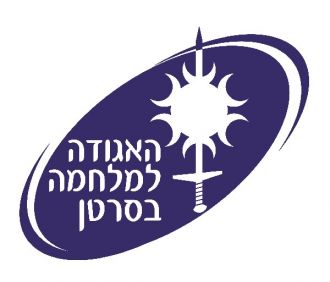The study was presented at the "Celebrate Life" conference held yesterday (Wednesday) by the Cancer Society

As part of the activities for the breast cancer awareness month, which is celebrated in Israel and around the world, the Association for the War on Cancer held a study day to "celebrate life", for women who have been diagnosed with breast cancer.
At the seminar that took place in the village of Maccabiah, which was attended by about 700 women who faced and are facing breast cancer, lectures were held on various topics and by senior specialist doctors in Israel: on innovative breast cancer treatments, tailoring personal breast cancer treatment, late side effects of the treatments, complementary medicine for cancer Shad, about cancer and relationships, what is wisdom. There was also a panel for questions and answers with the participation of the lecturers, as well as a nutritionist and a physiotherapist. The symposium was held courtesy of the "Rush" company as part of "Rush reaching out to the patient".
As part of the lectures held yesterday, a study was presented regarding breastfeeding and the relationship to the risk of getting breast cancer. Studies conducted in the past found that the older a woman is at the time of her first birth, and the fewer children she gives birth to, the higher the risk of getting breast cancer. A first-of-its-kind comparative study in the field, conducted at the Department of Preventive Medicine at the University of Southern California, in collaboration with the Department of Nutrition at the University of Oslo, Norway, examined the relationship between number of births, age at first birth, breastfeeding and age at onset of menstruation and risk of breast cancer. The researchers analyzed ten controlled studies conducted on the subject and published between 1995-2006.
The analysis of the results of the study shows that while early childbearing age reduced the risk of breast cancer only among some of the women who were diagnosed with breast cancer sensitive to hormone therapy (this is about two-thirds of the patients), breastfeeding and the onset of menstruation at a late age reduced the risk of cancer among the entire study population without a difference in sensitivity to estrogen or progesterone.
"Studies have found that each birth reduces the risk of getting breast cancer that is sensitive to hormone therapy by 11%. Also, for women who gave birth late for the first time, there is a 27% increased risk of getting this type of cancer. The number of births or the age of the woman at the time of the first birth was not related to the risk of breast cancer that is not sensitive to hormone therapy," said Miri Ziv, CEO of the Cancer Society.
"On the other hand, a late age of menstruation and breastfeeding reduced the risk of getting both types of breast cancer - sensitive and insensitive to hormone therapy. The researchers offered a possible explanation for this, according to which it is known that pregnancy creates a protective effect against breast cancer because the levels of the estrogen hormone decrease even after a certain period after pregnancy and breastfeeding allows additional protection because the production of the estrogen hormone is suppressed during breastfeeding, Miri Ziv added. "It turns out that breastfeeding reduces and even offsets the risk of breast cancer even among women at higher risk, who gave birth for the first time over the age of 25. That is, it is a behavior that can in many cases be adopted to reduce the increased risk associated with the modern western lifestyle characterized by menstruating at a younger age - a phenomenon that is influenced by diet and lack of Physical activity - and birth at a later age."
The study was published in the American journal Breast Cancer Research.
